In the intricate web of your vehicle’s mechanics, the car battery and electrical system hold the pulse of everyday functionality. From igniting the engine’s first spark to powering the countless devices that make driving safer and more convenient, these components are the unsung heroes of the road. Yet, like any crucial system, they are vulnerable to wear, weather, and neglect—leading to unexpected failures that can leave you stranded or facing costly repairs. Understanding how to prevent car battery and electrical failures is not just about avoiding inconvenience; it’s about mastering the subtle art of automotive care. This article will guide you through practical tips and expert insights to keep your car’s electrical heartbeat steady and strong, ensuring every journey begins and ends on a reliable note.
Table of Contents
- Routine Maintenance Practices to Extend Battery Life
- Understanding the Signs of Electrical System Trouble
- Choosing the Right Battery for Your Vehicle
- Effective Tips for Keeping Battery Terminals Clean and Secure
- The Role of Proper Wiring and Fuse Management
- Preventative Measures Against Cold Weather Battery Drain
- Q&A
- In Conclusion
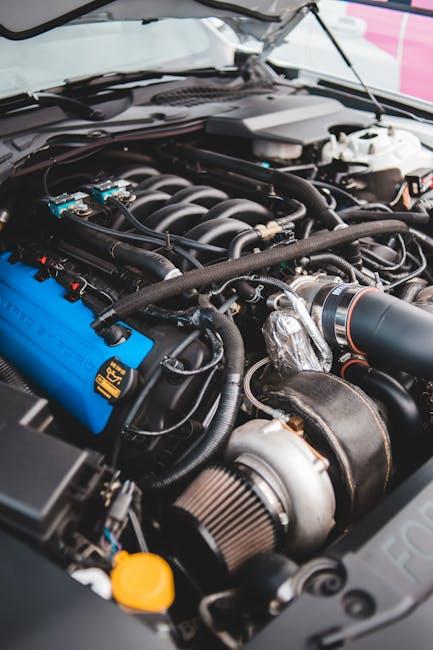
Routine Maintenance Practices to Extend Battery Life
Consistently caring for your car battery involves a few key habits that can significantly boost its lifespan. Regularly checking the battery terminals for corrosion and cleaning them with a mixture of baking soda and water prevents acids from eating away at the metal connections. Also, ensure all cables are tightly secured, as loose connections can cause intermittent power loss and diminish battery performance. Avoid leaving your vehicle’s lights or electronic accessories on when the engine is off, as this drains the battery unnecessarily. Additionally, performing routine voltage tests helps you stay ahead of any potential issues, giving you time to replace the battery before it fails.
Simple maintenance practices include:
- Inspect battery terminals monthly for corrosion or looseness
- Use a terminal protector spray to resist future buildup
- Test battery voltage every 3-6 months
- Keep your battery charged, especially during extended inactivity
- Store your car in shaded areas to avoid excessive heat exposure
| Maintenance Task | Recommended Frequency | Benefit |
|---|---|---|
| Terminal Cleaning | Monthly | Prevents corrosion buildup |
| Voltage Testing | Every 3-6 months | Early fault detection |
| Charge Monitoring | After inactivity over 2 weeks | Maintains battery capacity |
| Secure Connections | Each service visit | Consistent power flow |
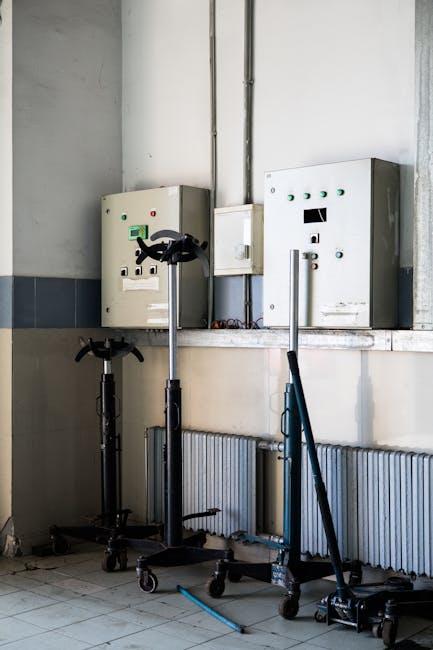
Understanding the Signs of Electrical System Trouble
Recognizing early warning signs can save your car’s electrical system from severe damage and costly repairs. Keep an eye out for dim headlights or flickering dashboard lights, which often indicate a failing alternator or battery issues. Another common symptom is trouble starting your vehicle, especially if the engine cranks slowly or not at all. Unexplained blown fuses or malfunctioning power accessories such as windows, locks, or radios also signal potential electrical faults that require immediate attention.
Understanding these signs can empower you to take swift action. Here is a quick guide to common symptoms and their possible causes:
| Symptom | Possible Cause |
|---|---|
| Dim or flickering lights | Weak battery or faulty alternator |
| Slow engine crank | Battery nearing end of life |
| Blown fuses | Short circuits or electrical overload |
| Malfunctioning power accessories | Wiring issues or failing relay switches |
Staying vigilant and addressing these signs promptly can extend your vehicle’s lifespan and ensure a trouble-free driving experience.
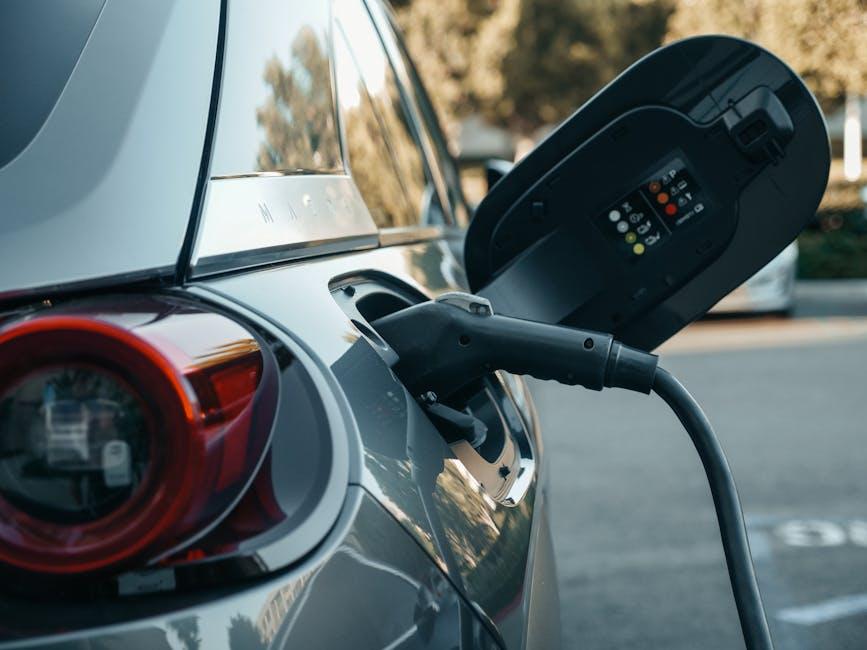
Choosing the Right Battery for Your Vehicle
When selecting a battery for your vehicle, it’s crucial to consider the specific power requirements and compatibility with your car’s make and model. Not all batteries are created equal—factors like cold cranking amps (CCA) and reserve capacity (RC) play significant roles in performance. Opt for a battery that meets or exceeds the manufacturer’s specifications to ensure reliable starts in various weather conditions and long-lasting energy supply. Also, take into account the battery size and terminal placement to avoid installation issues.
To streamline your decision, focus on these essential criteria:
- Battery Type: Lead-acid vs. AGM (Absorbent Glass Mat) – AGM batteries offer superior vibration resistance and are better for vehicles with advanced electrical systems.
- Warranty and Lifespan: Longer warranties often indicate higher quality and durability.
- Brand Reputation: Trusted brands typically undergo rigorous testing, ensuring dependable performance.
- Environmental Factors: Choose batteries designed to withstand your local climate, especially extreme cold or heat.
| Battery Feature | Benefit | Vehicle Type |
|---|---|---|
| High CCA | Better cold start performance | Cold climates |
| AGM Technology | Longer life, spill-proof | Luxury/Sport cars |
| Deep Cycle | Handles repeated discharge | RV/Off-road |

Effective Tips for Keeping Battery Terminals Clean and Secure
Keeping your battery terminals spotless is a small effort that pays off hugely in preventing electrical failures. Corrosion and grime build-up not only block the efficient flow of electricity but can also spark unexpected power interruptions. A simple routine of wiping the terminals with a mixture of baking soda and water effectively neutralizes acid deposits, while a wire brush or a dedicated battery terminal cleaner can restore the metal’s shine and conductivity. Remember, after cleaning, coating the terminals with a thin layer of petroleum jelly or a specialized terminal protector spray forms a barrier against moisture and future corrosion.
Securing your battery terminals firmly in place is just as vital as cleaning. Loose connections create resistance and heat, accelerating wear and risking sudden electrical failures. To ensure a secure fit:
- Inspect clamps regularly: Confirm they are free from rust and fit tightly.
- Use the correct tools: Tighten clamps without overdoing it to avoid damage.
- Apply anti-corrosion pads: These cushions help reduce buildup and enhance terminal longevity.
| Tool | Purpose | Tip |
|---|---|---|
| Wire Brush | Remove corrosion | Use gently to avoid metal damage |
| Baking Soda | Neutralize acid | Mix with water for paste |
| Petroleum Jelly | Protect terminals | Apply thin layer evenly |
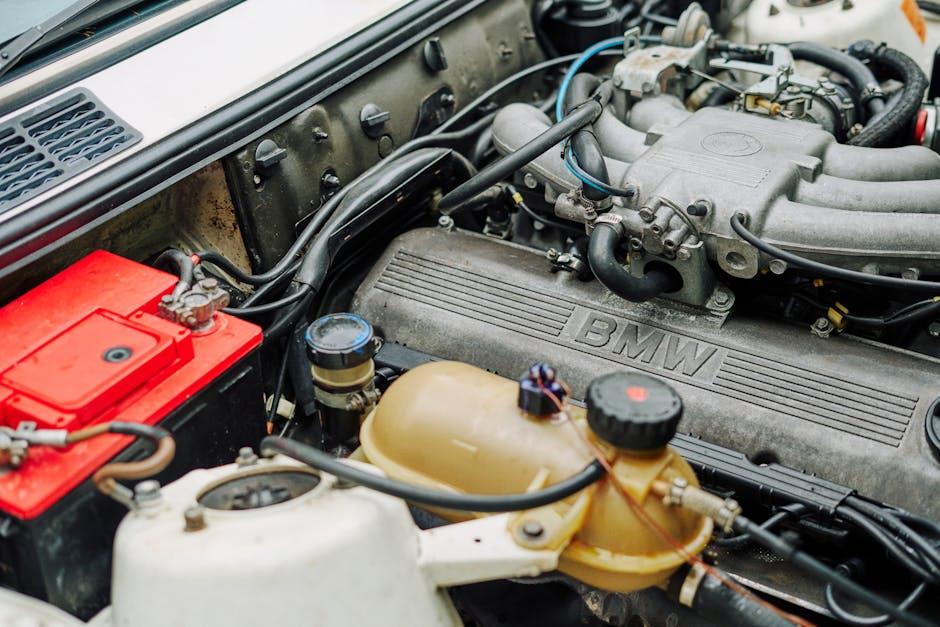
The Role of Proper Wiring and Fuse Management
Ensuring that your vehicle’s electrical system is wired correctly is fundamental to avoiding unexpected battery failures and electrical malfunctions. Improper wiring can lead to short circuits, overloading, and even damage to sensitive components. Investing in quality wiring materials and ensuring connections are secure and corrosion-free helps maintain the integrity of the entire system. Regular inspection of wiring harnesses, especially in high-vibration areas like the engine bay, is crucial to detect frayed wires or loose terminals before they turn into costly repairs.
Fuse management complements good wiring practices by acting as the vehicle’s first line of defense against electrical faults. Utilizing the correct fuse ratings and promptly replacing blown fuses with ones that match the manufacturer’s specifications prevents damage to circuits and downstream electronics. Below is a helpful guide summarizing common fuse ratings and their typical applications in automotive systems:
| Fuse Rating | Common Use |
|---|---|
| 5A | Dashboard electronics |
| 10A | Interior lighting |
| 15A | Radio and infotainment |
| 30A | Power windows and sunroofs |
- Check fuse panel regularly for signs of overheating or corrosion.
- Label fuses clearly to avoid confusion during maintenance.
- Avoid bypassing fuses to prevent potential fire hazards.

Preventative Measures Against Cold Weather Battery Drain
When temperatures drop, your vehicle’s battery faces a tougher challenge than usual. To combat this, it’s crucial to adopt habits that conserve battery power during the cold months. Consistently keeping your battery charged by using a smart charger or attaching a trickle charger overnight helps maintain optimal power levels. Additionally, minimizing the use of electrical accessories like heated seats and defrosters when the engine isn’t running can reduce strain. Be mindful of short trips as well; cold weather reduces the battery’s ability to recharge effectively within limited driving time.
Another effective strategy involves regular maintenance and protection. Before winter hits, have the battery terminals cleaned and inspected for corrosion, which can impede power flow. Installing a battery insulation kit or blanket acts as a thermal shield, preserving the battery’s warmth and enhancing performance. For a clearer view, the following table summarizes simple preventative steps and their benefits:
| Preventative Step | Benefit |
|---|---|
| Use a battery maintainer | Maintains full charge during inactivity |
| Limit electrical accessory use | Reduces unnecessary power drain |
| Clean battery terminals | Ensures optimal power transfer |
| Apply battery insulation | Prevents cold-induced power loss |
Q&A
Q&A: How to Prevent Car Battery and Electrical Failures
Q1: Why do car batteries and electrical systems fail in the first place?
A1: Car batteries and electrical systems can fail due to several reasons including age-related wear, corrosion on terminals, loose or damaged wiring, extreme temperatures, and improper usage like leaving lights on. Over time, these factors degrade the battery’s ability to hold a charge and disrupt the electrical flow.
Q2: What are the early warning signs that my car’s battery or electrical system might be failing?
A2: Common warning signs include slow engine crank when starting, dim headlights, flickering dashboard lights, and unusual smells like sulfur (rotten egg scent) near the battery. Also, if your car’s electronics act up—such as the radio or power windows malfunctioning—it might indicate electrical issues.
Q3: How often should I check my car battery and electrical connections?
A3: It’s smart to inspect your battery and electrical system at least twice a year—preferably before winter and summer. Regular checks can prevent unexpected breakdowns by identifying corrosion, loose cables, or a weak battery early on.
Q4: What maintenance steps can prolong the life of my car battery?
A4: Keep the battery terminals clean and free from corrosion using a baking soda and water solution or specialized cleaners. Ensure all connections are tight. Avoid short trips where the battery doesn’t fully recharge, and disconnect accessories like phone chargers when not in use. Additionally, park your car in shaded or sheltered areas to avoid extreme heat or freezing.
Q5: Can modern technology help prevent electrical failures?
A5: Absolutely. Many vehicles now come equipped with battery management systems that monitor health and send alerts if any issues arise. Using smart chargers during periods of inactivity also maintains optimal charge levels and prolongs battery life.
Q6: Is it okay to jump-start my car if the battery is dead?
A6: Jump-starting is a useful temporary fix, but it’s important to follow the correct procedure to avoid damaging electronic components. Excessive or improper jump-starting can strain the electrical system, so if your battery frequently dies, it’s time for a replacement or professional inspection.
Q7: When should I replace my car battery?
A7: Typically, car batteries last between 3 to 5 years. If your battery shows signs of failure—like slow starts, warning lights on your dashboard, or it’s past the typical lifespan—consider replacing it proactively to avoid being stranded.
Q8: Can electrical failures affect vehicle safety?
A8: Yes, electrical issues can compromise essential functions such as lighting, ABS brakes, airbags, and engine management, potentially creating safety hazards. Maintaining your car’s electrical health ensures these critical systems operate effectively.
Q9: Should I consult a professional for electrical problems?
A9: While minor battery maintenance can be done at home, electrical problems often require diagnostic tools and expertise. If you experience persistent or complex issues, a qualified mechanic or automotive electrician should be consulted to prevent further damage.
Q10: What’s the best mindset for preventing battery and electrical failures?
A10: Think of your car’s battery and electrical system as the nervous system of your vehicle—delicate yet vital. Regular care, timely inspections, and mindful usage create a harmony that keeps your vehicle reliably powered and electrically sound for the long haul.
In Conclusion
In the intricate dance between power and performance, your car’s battery and electrical system play the starring roles behind the scenes. By embracing preventative care—from regular inspections to mindful driving habits—you not only extend your vehicle’s lifespan but also safeguard yourself from unexpected roadside surprises. After all, a well-maintained electrical system is the silent guardian of every journey, ensuring that the spark keeps flowing and the road ahead stays bright. So, stay charged, stay vigilant, and drive with confidence.

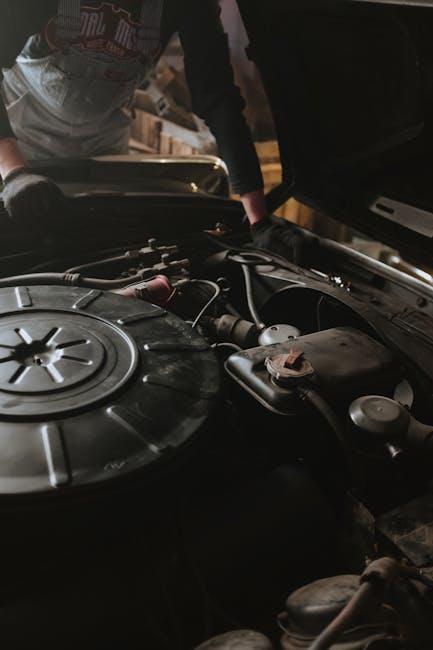
484 Comments
32mkpq
32mkpq
ithcqw
gzve00
qc77ph
d4c6sk
618qq8
av384z
cjd6dh
izt26j
94hf1f
https://t.me/s/Online_1_xbet/430
https://t.me/s/Online_1_xbet/2850
https://t.me/s/Official_1xbet_1xbet
https://t.me/rating_online/2
https://t.me/s/rating_online/6
https://t.me/rating_online/4
https://t.me/s/rating_online/9
https://t.me/rating_online/7
https://t.me/rating_online/9
https://t.me/s/rating_online/3
https://t.me/Online_1_xbet/2795
https://t.me/Online_1_xbet/2762
https://t.me/Online_1_xbet/3088
https://t.me/Online_1_xbet/1991
ys6ft0
https://t.me/Online_1_xbet/2392
https://t.me/Online_1_xbet/1975
https://t.me/Online_1_xbet/2374
https://t.me/Online_1_xbet/3043
https://t.me/Online_1_xbet/3372
https://t.me/Online_1_xbet/1999
https://t.me/Online_1_xbet/3524
https://t.me/Online_1_xbet/2139
https://t.me/Official_1xbet_1xbet/s/503
https://t.me/Official_1xbet_1xbet/s/1558
https://t.me/Official_1xbet_1xbet/s/270
https://t.me/Official_1xbet_1xbet/s/1086
https://t.me/Official_1xbet_1xbet/s/1519
https://t.me/Official_1xbet_1xbet/s/307
https://t.me/Official_1xbet_1xbet/s/1450
https://t.me/Official_1xbet_1xbet/s/257
https://t.me/Official_1xbet_1xbet/s/1539
https://t.me/Official_1xbet_1xbet/s/368
https://t.me/Official_1xbet_1xbet/s/92
https://t.me/Official_1xbet_1xbet/s/265
https://t.me/Official_1xbet_1xbet/s/1176
https://t.me/Official_1xbet_1xbet/s/745
https://t.me/Official_1xbet_1xbet/s/273
https://t.me/Official_1xbet_1xbet/s/162
https://t.me/Official_1xbet_1xbet/s/983
https://t.me/Official_1xbet_1xbet/s/584
https://t.me/Official_1xbet_1xbet/s/744
https://t.me/Official_1xbet_1xbet/s/292
https://t.me/Official_1xbet_1xbet/s/1019
https://t.me/Official_1xbet_1xbet/s/540
https://t.me/Official_1xbet_1xbet/s/706
https://t.me/Official_1xbet_1xbet/s/1165
https://t.me/Official_1xbet_1xbet/s/823
https://t.me/Official_1xbet_1xbet/s/1055
https://t.me/Official_1xbet_1xbet/s/1515
https://t.me/Official_1xbet_1xbet/s/1478
https://t.me/Official_1xbet_1xbet/s/1297
https://t.me/Official_1xbet_1xbet/s/888
https://t.me/Official_1xbet_1xbet/s/363
https://t.me/Official_1xbet_1xbet/s/1422
https://t.me/Official_1xbet_1xbet/s/769
https://t.me/Official_1xbet_1xbet/s/1412
https://t.me/Official_1xbet_1xbet/s/1288
https://t.me/Official_1xbet_1xbet/s/1129
https://t.me/Official_1xbet_1xbet/s/1309
https://t.me/Official_1xbet_1xbet/s/1128
https://t.me/Official_1xbet_1xbet/s/1106
https://t.me/Official_1xbet_1xbet/s/142
https://t.me/Official_1xbet_1xbet/s/1410
https://t.me/Official_1xbet_1xbet/s/1349
https://t.me/Official_1xbet_1xbet/s/899
https://t.me/Official_1xbet_1xbet/s/1369
https://t.me/Official_1xbet_1xbet/s/842
https://t.me/Official_1xbet_1xbet/s/81
https://t.me/Official_1xbet_1xbet/1601
https://t.me/s/Official_1xbet_1xbet/1771
https://t.me/s/Official_1xbet_1xbet/1742
https://t.me/s/Official_1xbet_1xbet/1817
https://t.me/s/Official_1xbet_1xbet/1690
https://t.me/s/Official_1xbet_1xbet/1626
https://t.me/Official_1xbet_1xbet/1753
https://t.me/s/Official_1xbet_1xbet/1765
https://t.me/Official_1xbet_1xbet/1800
https://t.me/Official_1xbet_1xbet/1690
https://t.me/s/Official_1xbet_1xbet/1753
https://t.me/s/Official_1xbet_1xbet/1798
https://t.me/Official_1xbet_1xbet/1693
https://t.me/Official_1xbet_1xbet/1804
https://t.me/Official_1xbet_1xbet/1775
https://t.me/s/Official_1xbet_1xbet/1842
https://t.me/Official_1xbet_1xbet/1808
https://t.me/Official_1xbet_1xbet/1799
https://t.me/s/Official_1xbet_1xbet/1730
https://t.me/Official_1xbet_1xbet/1665
https://t.me/s/Official_1xbet_1xbet/1738
https://t.me/s/Official_1xbet_1xbet/1806
https://t.me/Official_1xbet_1xbet/1619
https://t.me/s/Official_1xbet_1xbet/1725
https://t.me/s/Official_1xbet_1xbet/1687
https://t.me/s/Official_1xbet_1xbet/1741
https://t.me/Official_1xbet_1xbet/1639
https://t.me/Official_1xbet_1xbet/1706
https://t.me/Official_1xbet_1xbet/1631
https://t.me/Official_1xbet_1xbet/1790
https://t.me/s/Official_1xbet_1xbet/1745
https://t.me/Official_1xbet_1xbet/1780
https://t.me/Official_1xbet_1xbet/1679
https://t.me/Official_1xbet_1xbet/1738
https://t.me/Official_1xbet_1xbet/1648
https://t.me/s/Official_1xbet_1xbet/1631
https://t.me/Official_1xbet_1xbet/1694
https://t.me/Official_1xbet_1xbet/1595
https://t.me/s/Official_1xbet_1xbet/1831
https://t.me/s/Official_1xbet_1xbet/1632
https://t.me/Official_1xbet_1xbet/1625
https://t.me/Official_1xbet_1xbet/1632
https://t.me/s/Official_1xbet_1xbet/1858
https://t.me/Official_1xbet_1xbet/1710
https://t.me/Official_1xbet_1xbet/1816
https://t.me/Official_1xbet_1xbet/1789
https://t.me/Official_1xbet_1xbet/1688
https://t.me/Official_1xbet_1xbet/1857
https://t.me/s/Official_1xbet_1xbet/1830
https://t.me/s/Official_1xbet_1xbet/1760
https://t.me/Official_1xbet_1xbet/1740
https://t.me/Official_1xbet_1xbet/1680
https://t.me/s/Official_1xbet_1xbet/1767
https://t.me/Official_1xbet_1xbet/1741
https://t.me/Official_1xbet_1xbet/1757
https://t.me/s/Official_1xbet_1xbet/1700
https://t.me/Official_1xbet_1xbet/1598
https://t.me/s/Official_1xbet_1xbet/1608
https://t.me/s/Official_1xbet_1xbet/1721
https://t.me/s/Official_1xbet_1xbet/1846
https://t.me/Official_1xbet_1xbet/1734
https://t.me/s/Official_1xbet_1xbet/1612
https://t.me/s/Official_1xbet_1xbet/1758
https://t.me/s/Official_1xbet_1xbet/1610
https://t.me/Official_1xbet_1xbet/1826
https://t.me/Official_1xbet_1xbet/1771
https://t.me/s/topslotov
i9ziud
https://t.me/s/official_1win_aviator
https://t.me/s/reiting_top10_casino/9
https://t.me/reiting_top10_casino/6
https://t.me/s/reiting_top10_casino/6
https://t.me/reiting_top10_casino/2
https://t.me/reiting_top10_casino/9
https://t.me/reiting_top10_casino/7
https://t.me/s/reiting_top10_casino/5
https://t.me/s/reiting_top10_casino
https://t.me/s/reiting_top10_casino/10
https://t.me/s/reiting_top10_casino/3
https://t.me/s/reiting_top10_casino/2
https://t.me/reiting_top10_casino
https://t.me/reiting_top10_casino/4
https://t.me/reiting_top10_casino/10
https://t.me/s/reiting_top10_casino/7
https://t.me/reiting_top10_casino/3
https://t.me/s/reiting_top10_casino/4
https://t.me/reiting_top10_casino/5
https://t.me/s/reiting_top10_casino/8
https://t.me/reiting_top10_casino/8
https://t.me/s/Gaming_1xbet
https://t.me/s/PlayCasino_1xbet
https://t.me/s/PlayCasino_1win
https://t.me/s/PlayCasino_1xbet
https://t.me/s/PlayCasino_1win
https://t.me/s/ofitsialniy_1win/33/evith
https://t.me/s/iw_1xbet
https://t.me/s/ofitsialniy_1win
https://t.me/s/Official_beefcasino
z4afzf
https://t.me/s/bs_1xbet/19
https://t.me/s/bs_1xbet/20
https://t.me/s/bs_1xbet/31
https://t.me/s/bs_1xbet/7
https://t.me/s/bs_1xbet/16
https://t.me/s/bs_1xbet/18
https://t.me/bs_1xbet/26
https://t.me/bs_1xbet/40
https://t.me/s/bs_1xbet/38
https://t.me/bs_1xbet/50
https://t.me/bs_1xbet/29
https://t.me/bs_1xbet/9
https://t.me/s/bs_1xbet/37
https://t.me/s/bs_1xbet/33
https://t.me/s/bs_1xbet/16
https://t.me/s/bs_1xbet/20
https://t.me/s/bs_1xbet/51
https://t.me/bs_1xbet/21
https://t.me/bs_1xbet/30
https://t.me/s/bs_1xbet/35
https://t.me/s/bs_1xbet/39
https://t.me/s/bs_1xbet/44
https://t.me/bs_1xbet/14
https://t.me/s/bs_1xbet/11
https://t.me/bs_1xbet/38
https://t.me/bs_1xbet/28
https://t.me/bs_1xbet/32
https://t.me/s/bs_1xbet/46
https://t.me/bs_1xbet/24
https://t.me/s/bs_1xbet/35
https://t.me/bs_1xbet/29
https://t.me/bs_1xbet/34
https://t.me/s/bs_1xbet/51
https://t.me/s/bs_1xbet/17
https://t.me/s/bs_1xbet/34
https://t.me/s/bs_1xbet/5
https://t.me/bs_1xbet/51
https://t.me/s/bs_1xbet/49
https://t.me/bs_1xbet/27
https://t.me/s/bs_1xbet/4
https://t.me/s/bs_1xbet/51
https://t.me/jw_1xbet/820
https://t.me/s/jw_1xbet/553
https://t.me/s/jw_1xbet/622
https://t.me/jw_1xbet/433
https://t.me/s/jw_1xbet/632
https://t.me/s/jw_1xbet/433
https://t.me/bs_1Win/479
https://t.me/s/bs_1Win/514
https://t.me/bs_1Win/654
https://t.me/s/bs_1Win/1042
https://t.me/bs_1Win/1253
https://t.me/s/bs_1Win/370
https://t.me/s/bs_1Win/369
https://t.me/s/bs_1Win/376
https://t.me/bs_1Win/1106
https://t.me/s/bs_1Win/1235
https://t.me/bs_1Win/718
https://t.me/s/bs_1Win/890
https://t.me/s/bs_1Win/1016
https://t.me/s/Official_mellstroy_casino/13
https://t.me/s/Beefcasino_rus/8
https://t.me/Official_mellstroy_casino/12
https://t.me/Official_mellstroy_casino/33
https://t.me/s/Official_mellstroy_casino/30
https://t.me/Official_mellstroy_casino/43
https://t.me/Official_mellstroy_casino/32
https://t.me/s/Official_mellstroy_casino/44
https://t.me/s/Official_mellstroy_casino/23
https://t.me/s/Official_mellstroy_casino/15
https://t.me/Official_mellstroy_casino/24
https://t.me/Best_promocode_rus/2182
https://t.me/Best_promocode_rus/3394
https://t.me/s/Beefcasino_rus/57
https://t.me/s/ud_Gizbo/50
https://t.me/s/ud_Rox/59
https://t.me/ud_Stake/51
https://t.me/s/ud_1xSlots/49
https://t.me/s/ud_Gama/50
https://t.me/ud_Stake/44
https://t.me/ud_Riobet/54
https://t.me/ud_Pinco/49
https://t.me/ud_Flagman/44
https://t.me/s/ud_Gizbo/56
https://t.me/ud_MrBit/44
https://t.me/ud_PlayFortuna/49
https://t.me/s/ud_Gama/45
https://t.me/s/ud_Gama/59
https://t.me/ud_MrBit/51
https://t.me/s/ud_1xSlots/61
https://t.me/s/Beefcasino_rus/59
https://t.me/?ud_1Go/57
https://t.me/s/ud_Jet/62
https://t.me/s/ud_Pin_Up/56
https://t.me/s/ud_CatCasino/63
https://t.me/ud_Casino_X/64
https://t.me/ud_Izzi/55
https://t.me/?ud_1Go/64
https://t.me/ud_Gama/50
https://t.me/s/ud_GGBet/47
https://t.me/s/ud_Lex/43
https://t.me/s/ud_Leon/18
https://t.me/s/ud_voDkA
https://t.me/s/Ud_FlagMAN
https://t.me/s/UD_KOmEtA
https://t.me/s/Ud_GAMa
https://t.me/s/Beefcasino_rus
https://t.me/s/uD_dRagonMOneY
https://t.me/s/ud_JoycaSino
https://t.me/official_1win_aviator/38
https://t.me/s/UD_jEt
https://t.me/s/uD_daddy
https://t.me/s/official_1win_aviator/66
https://t.me/s/ud_StaKe
https://t.me/s/ud_1Go
https://t.me/s/ud_1XsLOtS
https://t.me/s/uD_leoN
https://t.me/s/UD_drIp
https://t.me/s/tf_1win
https://t.me/s/Top_bk_ru
https://t.me/s/kfo_1win
https://t.me/s/Top_bk_ru
https://t.me/s/tf_1win
https://t.me/s/ud_lEon
https://t.me/s/ud_1xSlOtS
https://t.me/official_1win_aviator/284
https://t.me/s/Ud_CatCasINo
https://t.me/s/ud_MOstBeT
https://t.me/s/ud_CAsiNo_X
https://t.me/s/Ud_joYCASino
https://t.me/s/uD_fLAgmAn
https://t.me/s/UD_VODKA
https://t.me/s/ud_gIZbo
https://t.me/s/ud_rox
https://t.me/s/ud_jeT
https://t.me/s/ud_keNT
https://t.me/s/uD_KomEtA
https://t.me/s/ke_Daddy
https://t.me/s/official_1win_aviator/47
https://t.me/s/kef_R7
https://t.me/s/ke_1xbet
https://t.me/s/ke_1Go
https://t.me/s/kef_beef
https://t.me/s/ke_Vulkan
https://t.me/s/ke_Kometa
https://t.me/s/ke_DragonMoney
https://t.me/s/ke_JoyCasino
https://t.me/s/ke_Riobet
https://t.me/s/ke_Gama
https://t.me/s/ke_GGBet
https://t.me/s/ke_PlayFortuna
https://t.me/s/ke_Booi
https://t.me/s/ke_Monro
https://t.me/s/ke_Flagman
https://t.me/s/kef_Rox
https://t.me/s/ke_Drip
https://t.me/s/ke_Pin_Up
https://t.me/s/ke_Legzo
https://t.me/s/ke_Stake
https://t.me/s/ke_Jet
https://t.me/s/ke_Casino_X
https://t.me/s/ke_kent
https://t.me/s/official_1win_aviator/622
https://t.me/s/ke_Starda
https://t.me/s/kef_Lex
https://t.me/official_1win_aviator/214
https://t.me/s/ke_Sol
https://t.me/s/ke_Gizbo
https://t.me/s/ke_Martin
https://t.me/s/ke_Vodka
https://t.me/s/ke_Fresh
https://t.me/s/ke_1Win
https://t.me/s/ke_CatCasino
https://t.me/s/official_1win_aviator/535
https://t.me/s/top_kazino_z
https://t.me/s/topcasino_v_rossii
https://t.me/a_Top_onlinecasino/10
https://t.me/a_Top_onlinecasino/18
https://t.me/s/a_Top_onlinecasino/8
https://t.me/s/a_Top_onlinecasino/13
https://t.me/a_Top_onlinecasino/12
https://t.me/s/a_Top_onlinecasino/9
https://t.me/a_Top_onlinecasino/6
https://t.me/a_Top_onlinecasino/14
https://t.me/s/a_Top_onlinecasino/5
https://t.me/s/a_Top_onlinecasino/10
https://t.me/topcasino_rus/
https://t.me/s/official_1Win_es
https://t.me/s/official_Drip_ed
https://t.me/s/official_PlayFortuna_ed
https://t.me/s/official_Lex_es
https://t.me/s/official_GGBet_ed
https://t.me/s/official_Daddy_ed
https://t.me/s/official_Jet_ed
https://t.me/s/official_PlayFortuna_es
https://t.me/s/official_Irwin_ed
https://t.me/s/official_Vulkan_ed
https://t.me/s/official_Izzi_ed
https://t.me/s/official_Legzo_ed
https://t.me/s/official_Fresh_ed
https://t.me/s/official_Daddy_es
https://t.me/s/official_Vulkan_es
https://t.me/s/official_1Go_ed
https://t.me/s/official_DragonMoney_es
https://t.me/s/official_Riobet_es
https://t.me/s/official_CasinoX_es
https://t.me/s/official_Gizbo_ed
https://t.me/s/official_PinUp_ed
https://t.me/s/official_Legzo_es
https://t.me/s/official_1xSlots_es
https://t.me/s/official_Kometa_ed
https://t.me/iGaming_live/4658
https://t.me/s/official_Martin_es
https://t.me/s/official_Lex_ed
https://t.me/GGBet_egs/10
https://t.me/s/Flagman_egs/16
https://t.me/s/Booi_egs/8
https://t.me/s/Rox_egs/4
https://t.me/s/Drip_egs/11
https://t.me/s/Fresh_egs/20
https://t.me/Pokerdom_egs/15
https://t.me/Gama_egs/5
https://t.me/s/Starda_egs/9
https://t.me/s/Legzo_egs/3
https://t.me/s/Kometa_egs/6
https://t.me/Fresh_egs/8
https://t.me/Volna_egs/7
https://t.me/s/Flagman_egs/5
https://t.me/Vulkan_egs/5
https://t.me/s/Gama_egs/4
https://t.me/s/Pinco_egs/18
https://t.me/JoyCasino_egs/11
https://t.me/Flagman_egs/19
https://t.me/s/Kometa_egs/18
https://t.me/Flagman_egs/10
https://t.me/Gizbo_egs/14
https://t.me/?@DragonMoney_egs/18
https://t.me/s/JoyCasino_egs/17
https://t.me/s/iGaming_live/4725
https://t.me/s/R7_egs/9
https://t.me/s/va_1xbet/7
https://t.me/s/va_1xbet/22
https://t.me/va_1xbet/14
https://t.me/s/va_1xbet/16
https://t.me/va_1xbet/21
https://t.me/va_1xbet/6
https://t.me/s/va_1xbet/15
https://t.me/va_1xbet/19
https://t.me/s/va_1xbet/4
https://t.me/s/va_1xbet/20
https://t.me/s/va_1xbet/24
https://t.me/va_1xbet/11
https://t.me/s/surgut_narashchivaniye_nogtey/9
https://t.me/surgut_narashchivaniye_nogtey/6
https://t.me/s/surgut_narashchivaniye_nogtey/8
https://t.me/s/rating_online
https://t.me/s/ah_1xbet/2
https://t.me/ah_1xbet/2
https://t.me/s/ah_1xbet/7
https://t.me/s/ah_1xbet/15
https://t.me/s/ah_1xbet/20
https://t.me/ah_1xbet/6
https://t.me/ah_1xbet/20
https://t.me/s/ah_1xbet/16
https://t.me/s/ah_1xbet/12
https://t.me/s/ah_1xbet/8
https://t.me/s/ah_1xbet/9
https://t.me/s/Best_rating_casino
https://t.me/reyting_topcazino/19
https://t.me/topcasino_rus/
https://t.me/a_Topcasino/2
https://t.me/top_ratingcasino/9
https://t.me/top_ratingcasino/3
https://t.me/top_ratingcasino/6
https://t.me/top_ratingcasino/10
https://t.me/top_ratingcasino/4
https://t.me/a_Topcasino/10
https://telegra.ph/top-kazino-11-14
https://telegra.ph/Top-kazino-11-14-2
https://t.me/kazino_bez_filtrov
https://t.me/s/kazino_bez_filtrov
https://t.me/da_1xbet/3
https://t.me/da_1xbet/11
https://t.me/da_1xbet/15
https://t.me/da_1xbet/6
https://t.me/da_1xbet/8
https://t.me/da_1xbet/5
https://t.me/da_1xbet/14
https://t.me/Best_promocode_rus/713
https://t.me/rq_1xbet/913
https://t.me/rq_1xbet/774
https://t.me/rq_1xbet/1365
https://t.me/s/rq_1xbet/828
https://t.me/s/rq_1xbet/1123
https://t.me/s/rq_1xbet/1172
https://t.me/s/rq_1xbet/1230
https://t.me/s/rq_1xbet/1017
https://t.me/Official_1xbet1/1185
https://t.me/Official_1xbet1/1312
https://t.me/Official_1xbet1/281
https://t.me/Official_1xbet1/1423
https://t.me/s/Official_1xbet1/1145
https://t.me/s/Official_1xbet1/352
https://t.me/s/Official_1xbet1/1133
https://t.me/Official_1xbet1/535